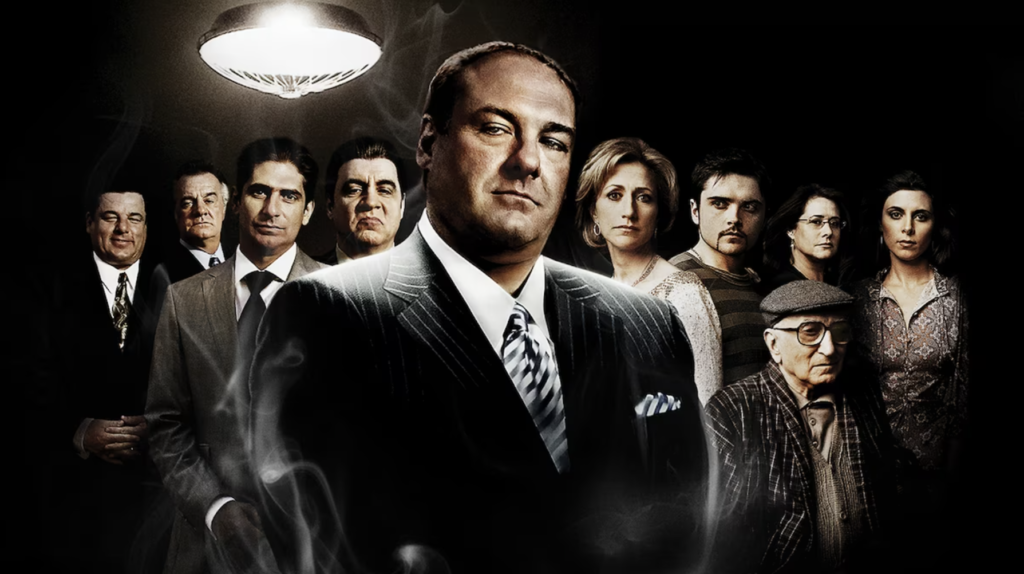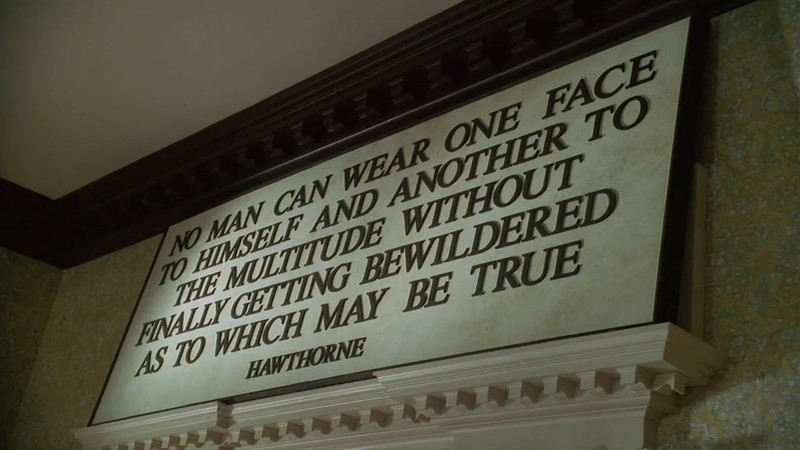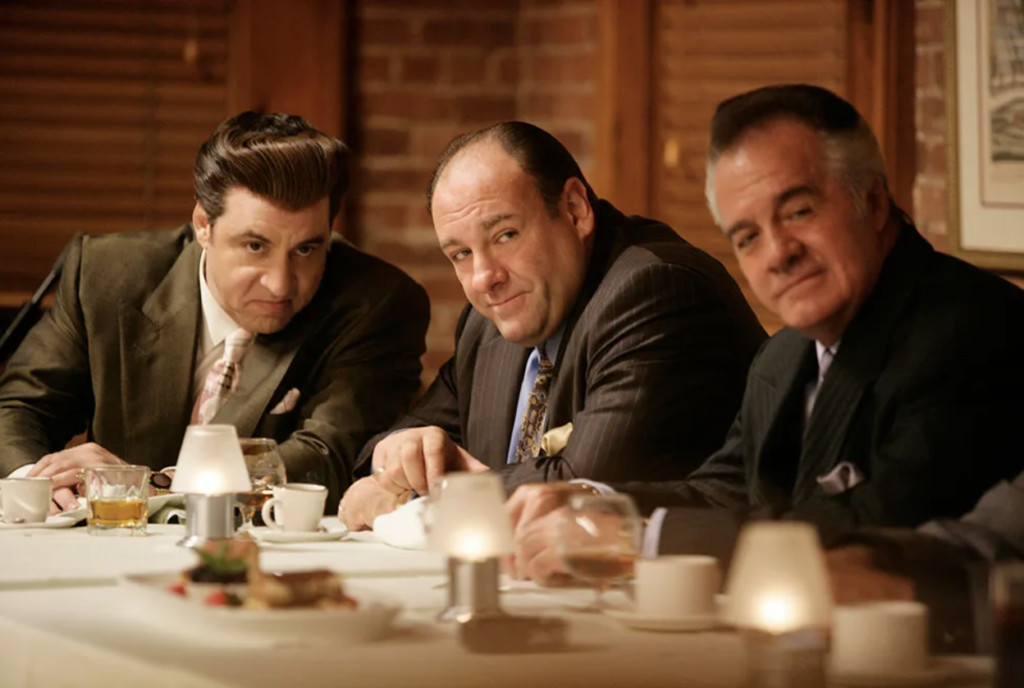
We buried him… on a hill. Overlooking a little river… with pine cones all around.
Approximately twenty-five years ago, HBO introduced audiences to The Sopranos, created by David Chase. This ground-breaking drama series revolutionized the portrayal of protagonists on television and laid the foundation for future television narratives by popularizing the concept of the “anti-hero.”
Before The Sopranos, traditional television protagonists were mostly paragons of virtue, exemplifying attributes such as bravery, honesty, and moral integrity. Characters like Tony Soprano, portrayed by the late James Gandolfini, were rare. This drastic shift began with Tony, a mob boss attending therapy, who was both deeply flawed and highly relatable. Tony’s characterization introduced audiences to a multifaceted individual grappling with profound insecurities, vulnerabilities, and ethical dilemmas. Unlike traditional heroes, Tony Soprano’s journey was inward, involving deep psychological introspection facilitated by his sessions with Dr. Jennifer Melfi (Lorraine Bracco). These sessions offered viewers unparalleled insight into his vulnerabilities and fears, humanizing a figure who would traditionally be cast purely as a villain. Such depth and complexity in character arcs were rarely seen in pre-existing television characters, making Tony Soprano an archetype that would inspire an entire generation of future anti-hero protagonists like Walter White in Breaking Bad, Don Draper in Mad Men, Jimmy McGill in Better Call Saul, and Nucky Thompson in Broadwalk Empire.

The Sopranos also fundamentally altered storytelling techniques and expectations within the television industry. Before the show, television characters were often simplified into dichotomous “good” and “bad” personas. Tony Soprano’s character broke this mold by introducing audiences to a protagonist with actions and motives that were morally ambiguous and ethically grey. The show explores the blurred lines between right and wrong, forcing viewers to question their own moral compass. Tony’s character, in particular, embodies this moral ambiguity, as he commits heinous acts while also displaying moments of genuine care and affection for his family. This complexity allowed for richer, more intricate narratives where characters were developed with psychological depth and internal conflict. Throughout the Sopranos, the series juxtaposed Tony’s violent criminal activities with his personal struggles, creating an ongoing tension that captivated viewers. His duality—loving father and brutal mob boss—ensured the anti-hero narrative was not only engaging but also relatable, compelling, and uniquely human. Another innovative aspect of The Sopranos was its handling of mental illness. Tony’s therapy sessions with Dr. Melfi brought mental health discussions to the forefront of popular culture, addressing issues like depression and anxiety with sensitivity and depth. This portrayal was groundbreaking, painting a realistic and empathetic picture of a man struggling with his mental health amidst the chaos of his criminal endeavors. This approach was a stark departure from previous television depictions, which often trivialized or ignored mental health issues.
The brilliant portrayal of the supporting characters is instrumental in the show’s narrative and philosophical undertones. Meadow Soprano, Tony’s daughter, represents a departure from the family’s criminal lifestyle. Introduced as a high-achieving high school student, Meadow is depicted as intelligent, insightful, and often critical of her family’s values. Her character arc is marked by her pursuit of higher education and a career that distances her from the mob’s influence. Meadow’s relationship with Tony is complex; she is both his pride and a source of tension, as her aspirations often clash with the family’s expectations. Silvio Dante and Paulie Gualtieri serve as archetypal figures against which Tony measures himself. Silvio represents the gangster Tony aspires to be—loyal, competent, and composed. In contrast, Paulie embodies the traits Tony fears—paranoia, impulsiveness, and a lack of self-awareness. These characters function as a skewed version of the angel and devil on Tony’s shoulders, influencing his decisions and reflecting his internal conflicts.
The Sopranos also redefined the long-form narrative structure in television. Prior to its premiere, TV shows typically adhered to episodic formats with self-contained stories. The Sopranos broke this mold by developing intricate, season-long story arcs that allowed for deeper character exploration and more complex plotlines. This approach not only engaged viewers on a deeper level but also demonstrated that television could offer storytelling experiences as rich and rewarding as those found in cinema. Also, The Sopranos incorporates flashbacks, therapy sessions, and dream sequences in its non-linear narrative. This method deepens the series’ layered storytelling and offers viewers a rich, multi-dimensional viewing experience. Episodes like The Test Dream and Mayham leverage surreal dream sequences to explore Tony’s subconscious, merging psychological depth with narrative complexity. Additionally, the series is replete with symbolism and metaphor, enhancing its storytelling. One notable example is the recurring motif of ducks, which symbolize Tony’s fear of losing his family. The ducks’ departure from his pool in the first season triggers Tony’s panic attacks, underscoring his deep-seated anxieties about his family’s safety and his role as a provider. Additionally, the show frequently uses food as a metaphor for power dynamics and relationships within the mob.
The Sopranos did more than tell the story of a mob family; it redefined what television could be. By introducing the concept of the anti-hero protagonist in Tony Soprano, the show expanded the boundaries of character-driven storytelling, elevated production standards, and tackled complex themes such as mental illness with unprecedented nuance and sensitivity. This has led to the golden era of television, characterized by sophisticated storytelling and complicated, compelling character arcs. Looking back on its 25-year legacy, The Sopranos stands as a towering achievement in television, having changed the medium irrevocably and for the better.
Now you remember one thing, and this you better hear. You wanna talk all this old-school bullshit about the rules? Well, here’s a rule you might remember. I’m the motherfuckin’ fuckin’ one who calls the shots. And you better pay me the respect that I gave your brother, or we’re gonna have a problem. A bad one. Now, get the fuck out of here.
